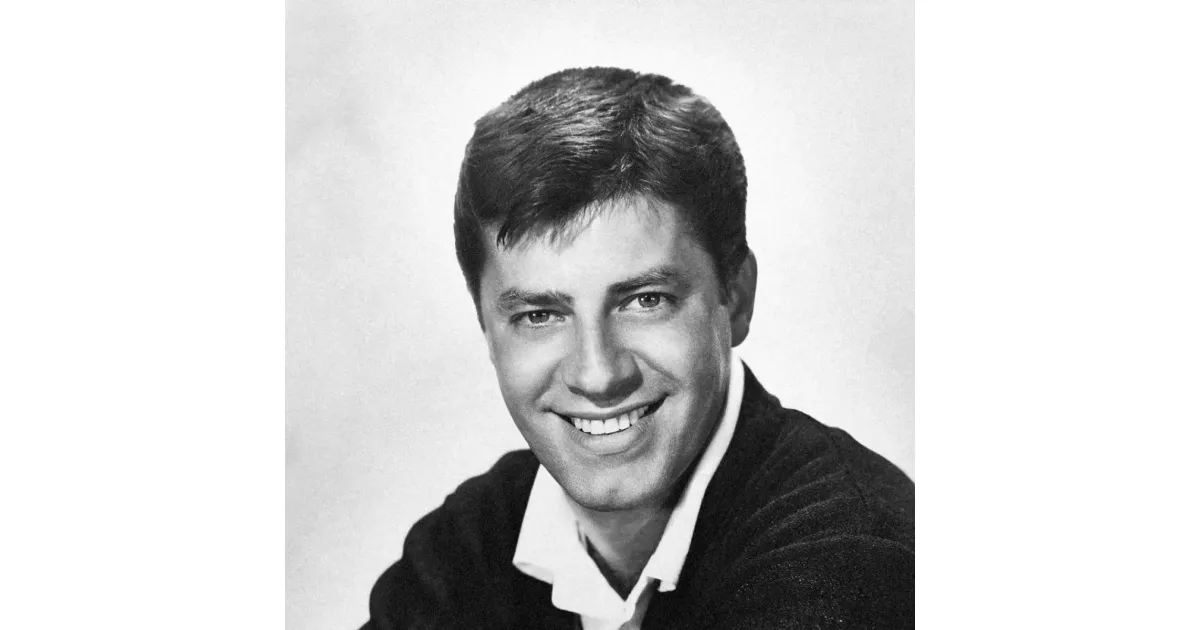Jerry Lewis, widely known as "The King of Comedy," was a multi-talented American entertainer. His career spanned comedy, acting, singing, and humanitarian work. Lewis starred in over 59 movies, notably his early work with Dean Martin as the iconic duo Martin and Lewis.
1902: Birth of Jerry Lewis's Father
In 1902, Daniel "Danny" Levitch, Jerry Lewis's father, was born.
1904: Birth of Jerry Lewis's Mother
In 1904, Rachael "Rae" Levitch, Jerry Lewis's mother, a talented pianist, was born.
March 16, 1926: Birth of Jerry Lewis
On March 16, 1926, Jerry Lewis, an iconic American comedian, actor, singer, and humanitarian, was born as Joseph Levitch.
1930: 1930 U.S. Census Records Jerry Lewis
The 1930 U.S. Census recorded Jerry Lewis, providing valuable information about his early life.
1940: 1940 U.S. Census Records Jerry Lewis
Jerry Lewis was recorded in the 1940 U.S. Census, offering insights into his family and upbringing.
October 3, 1944: Jerry Lewis Marries Patti Palmer
On October 3, 1944, Jerry Lewis married Patti Palmer, a singer with Ted Fio Rito's band.
1945: Birth of Gary Lewis
Gary Lewis, the eldest son of Jerry Lewis and Patti Palmer, was born in 1945.
1945: Jerry Lewis Meets Dean Martin
In 1945, a significant year for Jerry Lewis, he crossed paths with singer Dean Martin, setting the stage for their iconic comedic partnership.
July 25, 1946: Debut of Martin and Lewis
On July 25, 1946, Jerry Lewis and Dean Martin made their debut as a comedy duo, "Martin and Lewis," at the 500 Club in Atlantic City, marking the beginning of a legendary partnership.
June 20, 1948: Martin and Lewis's Television Debut
On June 20, 1948, Martin and Lewis made their television debut on CBS's "Toast of the Town," later known as "The Ed Sullivan Show," expanding their popularity to a wider audience.
October 3, 1948: Appearance on "Welcome Aboard"
Martin and Lewis appeared on the television show "Welcome Aboard" on October 3, 1948.
1948: Martin and Lewis Chart with "That Certain Party"
Dean Martin and Jerry Lewis achieved a musical chart success in 1948 with their recording of the 1920s song "That Certain Party."
1949: Martin and Lewis on "Texaco Star Theater"
In 1949, the comedic duo of Martin and Lewis made a guest appearance on the popular television show "Texaco Star Theater."
1949: Adoption of Ronald Lewis
Jerry Lewis and Patti Palmer expanded their family in 1949 by adopting a son, Ronald.
1949: Martin and Lewis's Film Debut in "My Friend Irma"
Martin and Lewis made their film debut as ensemble players in "My Friend Irma" in 1949.
1949: Las Vegas Performances with Dean Martin
Starting in 1949, Jerry Lewis, as part of the iconic duo Martin and Lewis, began performing in Las Vegas, marking the beginning of a long and successful association with the city.
1950: Jerry Lewis Opens Camera Shop
Jerry Lewis ventured into entrepreneurship in 1950, opening a camera shop as a business venture.
1950: Martin and Lewis on "The Colgate Comedy Hour" and "My Friend Irma"
Martin and Lewis became hosts of "The Colgate Comedy Hour" and starred in their first film, "My Friend Irma," in 1950.
December 1951: First Appeal for Muscular Dystrophy Association (MDA)
Jerry Lewis and Dean Martin made their first appeal for the Muscular Dystrophy Association (MDA) in December 1951 during the finale of "The Colgate Comedy Hour," marking the beginning of Lewis's decades-long commitment to the cause.
1951: Success at the Paramount Theatre and "That's My Boy"
In 1951, Martin and Lewis triumphed at New York's Paramount Theatre and starred in the film "That's My Boy."
1952: Release of "Sailor Beware," "Jumping Jacks," "The Stooge," and "Road to Bali"
1952 was a busy year for Martin and Lewis with the release of four films: "Sailor Beware," "Jumping Jacks," "The Stooge," and a cameo in "Road to Bali."
1952: "The Adventures of Dean Martin and Jerry Lewis" Comic Book
DC Comics began publishing "The Adventures of Dean Martin and Jerry Lewis" comic books in 1952, a testament to the duo's immense popularity.
1952: DC Comics Series Launch
DC Comics launched "The Adventures of Dean Martin and Jerry Lewis" comic book series in 1952, a testament to the duo's immense popularity and cultural impact.
1952: Second Appeal for MDA
Following their initial appeal, Jerry Lewis and Dean Martin made a second appeal for the MDA in 1952, further solidifying their support for the organization.
1952: Primetime Emmy Award Nomination
Jerry Lewis received his first Primetime Emmy Award nomination in 1952 in the Best Comedian or Comedienne category.
1952: Birth of Suzan, Alleged Daughter of Jerry Lewis
Suzan, alleged daughter of Jerry Lewis and Lynn Dixon Kleinman, was born in 1952.
1953: Release of "Scared Stiff," "The Caddy," and "Money from Home"
Martin and Lewis continued their film success with three releases in 1953: "Scared Stiff," "The Caddy," and "Money from Home."
1954: Charity Boxing Match for MDA
In 1954, Jerry Lewis participated in a charity boxing match against Rocky Marciano to raise funds for the Muscular Dystrophy Association, demonstrating his dedication to the cause.
1954: Release of "Living It Up" and "3 Ring Circus"
Martin and Lewis starred in two films in 1954, "Living It Up" and "3 Ring Circus."
1954: Martin and Lewis on "What's My Line?"
The duo, Martin and Lewis, appeared on the popular game show "What's My Line?" in 1954.
1955: Release of "You're Never Too Young" and "Artists and Models"
In 1955, Martin and Lewis appeared in two films, "You're Never Too Young" and "Artists and Models."
1955: Martin and Lewis at the 27th Academy Awards
Martin and Lewis made an appearance at the 27th annual Academy Awards in 1955.
July 24, 1956: Martin and Lewis's Final Nightclub Act
On July 24, 1956, Martin and Lewis performed their last live nightclub act together at the Copacabana, marking the end of their legendary partnership.
1956: Jerry Lewis Hosts the Academy Awards
In 1956, Jerry Lewis hosted the Academy Awards for the first time. He would go on to host the ceremony again in 1957 and 1959.
1956: Jerry Lewis's Solo Breakthrough
In 1956, after splitting with Dean Martin, Jerry Lewis had a breakthrough solo performance in Las Vegas, filling in for Judy Garland, and began his successful solo career.
1956: First MDA Telethon
Jerry Lewis and Dean Martin hosted the first-ever MDA telethon in 1956, a fundraising effort that would become a television tradition.
1956: Solo Performances in Las Vegas
Jerry Lewis's solo career in Las Vegas took off in 1956, establishing him as a major headliner in casino showrooms and solidifying his presence in the entertainment capital.
1956: Release of "Pardners" and "Hollywood or Bust"
Martin and Lewis concluded their successful film partnership with the release of "Pardners" and "Hollywood or Bust" in 1956.
1956: Birth of Scott Lewis
Scott Lewis, son of Jerry Lewis and Patti Palmer, was born in 1956.
January 1957: Jerry Lewis Solo Specials for NBC
Starting in January 1957, Jerry Lewis began doing a number of solo specials for NBC, further establishing himself as a solo performer post his partnership with Dean Martin.
February 1957: Jerry Lewis's Performance at the Palace Theater
In February 1957, Jerry Lewis followed Judy Garland at the Palace Theater in New York. During this period, Dean Martin called to wish him luck. Lewis expressed happiness and peace of mind for the first time. This marked a significant moment in his career as a solo act.
May 1957: "It All Depends On You" Charts
Jerry Lewis's single "It All Depends On You" reached the music charts in April and May 1957.
1957: Birth of Christopher Lewis
Christopher Lewis, son of Jerry Lewis and Patti Palmer, was born in 1957.
1957: End of "The Adventures of Dean Martin and Jerry Lewis" Comic Book
DC Comics ceased publication of "The Adventures of Dean Martin and Jerry Lewis" comic books in 1957.
1957: Jerry Lewis Challenges Southern Affiliates Over Sammy Davis Jr. Friendship
During his 1957 NBC special, Jerry Lewis faced opposition from southern affiliates due to his friendship with Sammy Davis Jr. Lewis stood his ground, refusing to distance himself from Davis.
1957: First Solo Film and The Sad Sack
In 1957, Jerry Lewis remained at Paramount and starred in his first solo film, The Delicate Delinquent, followed by The Sad Sack. This marked the beginning of his solo film career.
1957: MDA Thanksgiving Specials
Jerry Lewis spearheaded two Thanksgiving specials in 1957 to benefit the MDA, showcasing his commitment to raising awareness and funds for the organization.
September 30, 1958: Dean Martin's Surprise Appearance
Dean Martin surprised Jerry Lewis with an unexpected appearance on "The Eddie Fisher Show" on September 30, 1958, hinting at a possible reconciliation.
1958: Films with Frank Tashlin
In 1958, Jerry Lewis collaborated with Frank Tashlin, starring in Rock-A-Bye Baby and The Geisha Boy. Tashlin's background as a Looney Tunes director suited Lewis's brand of humor perfectly.
1959: Birth of Anthony Lewis
Anthony Lewis, son of Jerry Lewis and Patti Palmer, was born in 1959.
1959: MDA Thanksgiving Specials
Continuing his efforts, Jerry Lewis hosted two more Thanksgiving specials in 1959 to support the MDA.
1959: Martin and Lewis Reunite at the Academy Awards
Dean Martin and Jerry Lewis shared a brief reunion at the 1959 Academy Awards ceremony, sparking speculation about a possible comeback.
1959: Highest Paid Hollywood Talent
In 1959, Jerry Lewis signed a contract with Paramount and Jerry Lewis Productions for $10 million plus 60% of the profits for 14 films over seven years. This made him the highest paid individual Hollywood talent to date and granted him unprecedented creative control.
1959: Jerry Lewis's Improvisation at the Academy Awards
In 1959, during his third time hosting the Academy Awards, Jerry Lewis had to improvise for twenty minutes to fill time when the telecast ran short, demonstrating his quick wit and showmanship.
1959: Appearance in "The Jazz Singer"
Jerry Lewis appeared in the television movie "The Jazz Singer" in 1959.
1959: Declaration of Independence from Studio System
Jerry Lewis took a bold step in 1959 by declaring his independence from the studio system, a move that showcased his entrepreneurial spirit and paved the way for independent filmmaking.
1960: Pioneering Satire in Film
By 1960, Jerry Lewis had established himself as a pioneer in introducing satire as a full-length film genre, breaking away from traditional comedic styles and influencing future generations of comedians.
1960: Debut as Film Director
In 1960, Jerry Lewis made his debut as a film director with The Bellboy, which he also starred in. Despite Paramount's initial reluctance to finance the film, Lewis used his own funds to cover the $950,000 budget, showcasing his determination and creative vision.
1960: Jerry Lewis Stars in Cinderfella and The Bellboy
In 1960, Jerry Lewis starred in two successful comedy films, "Cinderfella" and "The Bellboy," showcasing his solo comedic talent.
1960: Pioneering Video Technology in Filmmaking
In 1960, while directing and starring in "The Bellboy," Jerry Lewis introduced groundbreaking video technology to the filmmaking process. He utilized video cameras and closed-circuit monitors, allowing him to instantly review his performance, a method that saved time and money by reducing the need for reshoots.
1960: First Heart Attack
While filming "Cinderfella" in 1960, Jerry Lewis experienced his first heart attack at the young age of 34.
1961: Directing The Ladies Man and The Errand Boy
In 1961, Jerry Lewis directed and co-wrote The Ladies Man and The Errand Boy. These films featured innovative set designs and were among the earliest films about movie-making.
1961: Release of The Errand Boy and The Ladies Man
Jerry Lewis continued his successful solo career in 1961 with the release of two more comedy films, "The Errand Boy" and "The Ladies Man."
1961: Exploration of Neuroticism in "The Ladies Man"
Jerry Lewis's comedic persona in "The Ladies Man" (1961) explored themes of neuroticism.
1962: Guest Hosting The Tonight Show
In 1962, Jerry Lewis guest-hosted The Tonight Show during the transition from Jack Paar to Johnny Carson. His appearance scored the highest ratings in late-night television at the time.
1963: Release of The Nutty Professor and Who's Minding the Store?
1963 saw the release of two more Jerry Lewis films, the iconic comedy "The Nutty Professor" and "Who's Minding the Store?"
1963: Release of The Nutty Professor
In 1963, Jerry Lewis directed, co-wrote, and starred in The Nutty Professor, a parody of Dr. Jekyll and Mr. Hyde. The film featured him as Professor Kelp, a socially inept scientist who invents a serum that turns him into a handsome but obnoxious ladies' man. It is often considered his best film.
1963: The Jerry Lewis Show on ABC
In 1963, Jerry Lewis hosted The Jerry Lewis Show, a lavish 13-week, big-budget show that aired on ABC from September to December, showcasing his versatility and appeal as a television host.
1964: Release of The Patsy and The Disorderly Orderly
In 1964, Jerry Lewis starred in The Patsy, a satire about the Hollywood star-making industry, and The Disorderly Orderly, his final collaboration with Frank Tashlin.
1964: Jerry Lewis Referenced in Andy Warhol's "Soap Opera"
Jerry Lewis, either directly or through his films, began appearing as a reference point in various films, starting with Andy Warhol's "Soap Opera" in 1964.
1964: Birth of Joseph Lewis
Joseph Lewis, son of Jerry Lewis and Patti Palmer, was born in 1964.
1964: Neuroticism and Schizophrenia in "The Disorderly Orderly" and "The Patsy"
Lewis further explored themes of neuroticism and schizophrenia in his 1964 films "The Disorderly Orderly" and "The Patsy."
1965: Golden Globe Nomination for Boeing Boeing
In 1965, Jerry Lewis starred in Boeing Boeing, his final film for Paramount, for which he received a Golden Globe nomination. He also made multiple television appearances and starred on The David Susskind Show.
1965: Release of The Family Jewels
Jerry Lewis starred in the comedy film "The Family Jewels" in 1965.
1965: Best Actor Nomination for "Boeing, Boeing"
Jerry Lewis's performance in the 1965 film "Boeing, Boeing" earned him a nomination for Best Actor in a Comedy or Musical Film.
1966: Jerry Lewis Appears on What's My Line?
From 1956 to 1966, Jerry Lewis made six appearances on the popular television show What's My Line?, showcasing his versatility as an entertainer.
1966: Leaving Paramount and Signing with Columbia Pictures
In 1966, Jerry Lewis left Paramount after 17 years due to a corporate shakeup. He then signed with Columbia Pictures and reinvented himself with more serious roles, starting with Three on a Couch.
1966: MDA Telethon Raises Over $1 Million
In 1966, the Jerry Lewis MDA Labor Day Telethon achieved a groundbreaking milestone by becoming the first telethon to raise over $1 million for a charitable cause.
1966: Launch of The Jerry Lewis MDA Telethon
Jerry Lewis began hosting "The Jerry Lewis MDA Telethon" in 1966, demonstrating his commitment to humanitarian work.
1966: The Jerry Lewis MDA Labor Day Telethon
The first Jerry Lewis MDA Labor Day Telethon aired in 1966, marking the beginning of an annual event that would span over four decades.
1967: Television Appearances and New Jerry Lewis Show
In 1967, Jerry Lewis made numerous television appearances, including The Merv Griffin Show and Batman. He also launched a second version of The Jerry Lewis Show, a one-hour variety show for NBC.
1967: Starred in The Big Mouth
In 1967, Jerry Lewis starred in The Big Mouth, continuing his successful career with Columbia Pictures.
1967: Recognition for Video Innovation and Teaching at USC
Jerry Lewis's video system, dubbed "Jerry's Noisy Toy," was featured in the 1967 featurette "Man in Motion." He received the Golden Light Technical Achievement award for his contribution to this filmmaking advancement. In the same year, he began teaching film directing at the University of Southern California.
1967: First Telethon Broadcast Entirely in Color
The MDA telethon embraced technological advancements in 1967 by becoming the first telethon to be broadcast entirely in color.
1968: Telethon Becomes Networked
Expanding its reach, the MDA telethon became a networked event in 1968, allowing for broader viewership and increased fundraising potential.
1968: Sequel to Salt and Pepper
In 1968, Jerry Lewis directed the Peter Lawford-Sammy Davis Jr. comedy One More Time, which was a sequel to Richard Donner's Salt and Pepper.
1968: Starred in Don't Raise the Bridge, Lower the River
In 1968, Jerry Lewis starred in Don't Raise the Bridge, Lower the River, further establishing his versatility and appeal in the film industry.
1969: Directed an Episode of The Bold Ones
In 1969, Jerry Lewis directed an episode of The Bold Ones and contributed to scripts for Filmation's animated series Will the Real Jerry Lewis Please Sit Down.
1969: Jerry Lewis Cinemas Franchise Launched
In 1969, Jerry Lewis entered the movie theater business by lending his name to "Jerry Lewis Cinemas." This franchise opportunity, offered by National Cinema Corporation, targeted individuals interested in theatrical movie exhibition.
1969: Starred in Hook, Line & Sinker
In 1969, Jerry Lewis starred in Hook, Line & Sinker, continuing his string of box office successes with Columbia Pictures.
1970: Directed One More Time and Produced Independently
In 1970, Jerry Lewis directed the film One More Time and produced his next motion picture independently, Which Way to the Front?, a World War II military comedy.
1970: Jerry Lewis Referenced in John Frankenheimer's "I Walk the Line"
Jerry Lewis, either directly or through his films, continued to be referenced in films, including John Frankenheimer's "I Walk the Line" in 1970.
1970: MDA Telethon Goes Coast-to-Coast
The MDA telethon achieved coast-to-coast broadcast coverage in 1970, uniting viewers across the country in support of the cause.
1971: End of DC Comics Series
After a successful run, DC Comics' "The Adventures of Dean Martin and Jerry Lewis" series concluded in 1971, marking the end of an era.
1971: Publication of The Adventures of Jerry Lewis
DC Comics published a new comic book series titled The Adventures of Jerry Lewis, running from 1957 to 1971, further cementing his legacy in popular culture.
1971: Publication of "The Total Film Maker"
In 1971, Jerry Lewis published "The Total Film Maker," a book based on his film directing lectures at USC. The book encapsulated his comprehensive approach to filmmaking, covering aspects from pre-production to distribution.
1972: First Attempt at Reviving Hellzapoppin
Alexander H. Cohen, impressed by Lynn Redgrave's performance in the 1972 televised revival of "Hellzapoppin," cast her in the stage production.
1972: Telethon Broadcast Outside Continental U.S.
Breaking geographical barriers, the MDA telethon expanded its broadcast reach beyond the continental United States in 1972, bringing the message of hope and support to a wider audience.
1972: The Day the Clown Cried Release and Controversy
In 1972, Jerry Lewis directed and starred in "The Day the Clown Cried," a drama set in a Nazi concentration camp. The film received limited release and faced controversy. Lewis rarely discussed the film, citing litigation issues and personal dissatisfaction with the final product.
1972: The Unreleased "The Day the Clown Cried"
Jerry Lewis directed and starred in the film "The Day the Clown Cried" in 1972, but it was never released.
1972: Jerry Lewis Referenced in Francis Ford Coppola's "The Godfather"
Jerry Lewis, either directly or through his films, appeared as a reference in Francis Ford Coppola's "The Godfather" in 1972.
1973: Ed McMahon Joins the Telethon
Ed McMahon joined the Jerry Lewis MDA Labor Day Telethon as co-host and announcer in 1973, a partnership that would last for many years.
1973: Jerry Lewis Appears on Highway Safety Telethon
In 1973, Jerry Lewis participated in the 1st Annual 20-hour Highway Safety Foundation Telethon, demonstrating his support for charitable causes beyond the Muscular Dystrophy Association.
1974: Record-Breaking Fundraising for Humanitarian Cause
The MDA telethon made history in 1974 by raising the largest sum ever in a single event for a humanitarian cause, solidifying its status as a fundraising powerhouse.
1975: Critical Recognition of Jerry Lewis as a Filmmaker
By 1975, French film critics began to seriously analyze Jerry Lewis's work, recognizing him as an auteur and innovator in filmmaking. His unique style and comedic approach earned him a place in film history.
1975: Jerry Lewis's Wallet Satirized in MAD Magazine
In 1975, MAD Magazine poked fun at Jerry Lewis by featuring a satirical look at the contents of his wallet in their recurring segment, "Celebrities' Wallets".
1976: Memorable Telethon Reunion
During the 1976 Muscular Dystrophy Association telethon, Frank Sinatra surprised Jerry Lewis by bringing Dean Martin on stage. The reunion was a heartwarming moment for both comedians and the audience.
1976: Martin and Lewis Reunion on the 1976 MDA Telethon
On the 1976 MDA Telethon, hosted by Jerry Lewis, there was a surprise reunion with his former comedy partner Dean Martin, orchestrated by Frank Sinatra. This marked a significant moment as the duo had been estranged for nearly two decades.
1976: Jerry Lewis Cast in "Hellzapoppin" Revival
Producer Alexander H. Cohen cast Jerry Lewis in a revival of the musical-comedy revue "Hellzapoppin" in 1976.
January 18, 1977: "Hellzapoppin" Revival Canceled
The planned Broadway revival of "Hellzapoppin" starring Jerry Lewis and Lynn Redgrave was canceled on January 18, 1977, after negative reactions from NBC executives.
1978: Overcoming Painkiller Addiction
By 1978, Jerry Lewis successfully overcame a 13-year addiction to the painkiller Percodan, marking a significant personal triumph.
1978: Jerry Lewis Referenced in Randal Kleiser's "Grease" and Rainer Werner Fassbinder's "In a Year of 13 Moons"
Jerry Lewis's influence continued to permeate cinema in 1978, with references appearing in both Randal Kleiser's "Grease" and Rainer Werner Fassbinder's "In a Year of 13 Moons".
1979: Circus of the Stars Appearance
Jerry Lewis guest-hosted as ringmaster for the annual CBS special "Circus of the Stars" in 1979.
1980: Death of Danny Lewis
Danny Lewis, Jerry Lewis's father and a prominent vaudevillian, passed away in 1980.
1980: Patti Palmer Files for Divorce from Jerry Lewis
In 1980, after 35 years of marriage, Patti Palmer filed for divorce from Jerry Lewis, citing his extravagant spending and infidelity as the primary reasons for the separation.
1980: Jerry Lewis Cinemas Franchise Declares Bankruptcy
The Jerry Lewis Cinemas franchise faced significant challenges and ultimately declared bankruptcy in 1980. Both Jerry Lewis and National Cinema Corporation, the franchiser, were impacted by the business failure.
1980: Guinness World Record for Televised Charitable Event
The MDA telethon's fundraising efforts were recognized by the Guinness Book of World Records in 1980 for receiving the greatest amount ever pledged to a televised charitable event.
1981: Return to Film with "Hardly Working"
Jerry Lewis returned to film in 1981 after an 11-year hiatus with "Hardly Working." Despite negative reviews, the film grossed $50 million.
1981: Stinker Award Nominations for "Hardly Working"
Jerry Lewis's work in the 1981 film "Hardly Working" garnered him two Stinker Award nominations, one for Worst Director and another for Worst Actor.
December 1982: Second Heart Attack
Jerry Lewis experienced his second heart attack in December 1982 at the age of 56.
1982: Jerry Lewis in The King of Comedy
In 1982, Jerry Lewis showcased his dramatic acting skills in Martin Scorsese's film "The King of Comedy," earning him a BAFTA nomination for Best Supporting Actor.
1982: Critically Acclaimed Role in "The King of Comedy"
Jerry Lewis received critical acclaim and a BAFTA nomination for his dramatic role as a late-night TV host in Martin Scorsese's "The King of Comedy" in 1982.
1982: Death of Rachael Levitch
Rachael "Rae" Levitch, Jerry Lewis's mother, passed away in 1982.
February 13, 1983: Jerry Lewis Marries SanDee Pitnick
On February 13, 1983, Jerry Lewis married Sandra "SanDee" Pitnick in Key Biscayne, Florida. Pitnick was a professionally trained ballerina and stewardess who had a brief appearance in Lewis's film, "Hardly Working."
February 1983: Open-Heart Surgery
In February 1983, Jerry Lewis underwent open-heart double-bypass surgery, a serious medical procedure following his heart problems.
1983: Jerry Lewis Hosts SNL
In 1983, Jerry Lewis hosted an episode of Saturday Night Live, during which Eddie Murphy and Joe Piscopo performed parodies of him.
1983: Psychological Exploration in "Cracking Up"
Jerry Lewis continued to explore the psychological aspects of his comedic persona, including neuroticism and schizophrenia, in the 1983 film "Cracking Up."
1983: "Cracking Up" Release
Jerry Lewis starred in the film "Cracking Up," which was released in 1983.
1983: Jerry and Patti Lewis Divorce Finalized
The divorce between Jerry Lewis and Patti Palmer was finalized in 1983, bringing their 35-year marriage to an end.
1984: French Films and Controlled Distribution
Jerry Lewis starred in two French films, "To Catch a Cop" and "How Did You Get In? We Didn't See You Leave," in 1984. He maintained control over their distribution and stated that they would not be released in American theaters or on home media.
1985: Jerry Lewis Referenced in Robert Zemeckis's "Back to the Future"
Further solidifying his presence in pop culture, Jerry Lewis was referenced in Robert Zemeckis's 1985 film "Back to the Future".
1985: Telethon Reaches 100 Million Viewers
In 1985, the MDA telethon reached an unprecedented 100 million viewers, highlighting its widespread appeal and the public's support for the cause.
1985: Syndicated Talk Show and "Brothers" Episode
Jerry Lewis hosted a syndicated talk show for Metromedia in 1985, which lasted for five episodes. He also directed an episode of the television series "Brothers."
1985: Razzie Award Nomination for "Slapstick of Another Kind"
Jerry Lewis received a Razzie Award nomination for Worst Actor for his role in the 1985 film "Slapstick of Another Kind."
1986: Standing Ovation at Comic Relief
Jerry Lewis was the only performer to receive a standing ovation at the first Comic Relief event in 1986.
1987: Televised Movie, Reunion with Sammy Davis Jr., and Reconciliation with Dean Martin
Jerry Lewis starred in the ABC televised movie "Fight for Life" in 1987. He also reunited with Sammy Davis Jr. for a performance at Bally's in Las Vegas. Following the death of Dean Martin's son, Dean Paul Martin, Lewis attended the funeral, leading to a reconciliation with Dean Martin.
1988: Hosting and Interview Appearances
Jerry Lewis hosted "America's All-Time Favorite Movies" and was interviewed by Howard Cosell on "Speaking of Everything" in 1988.
1989: Final Performance with Dean Martin and "Cookie" Release
Jerry Lewis joined Dean Martin on stage for Martin's final live performance at Bally's Hotel and Casino in Las Vegas in 1989. He also starred in the film "Cookie" that year.
1990: Directing "Super Force"
Jerry Lewis directed episodes of the television series "Super Force" in 1990.
1990: Jerry Lewis Writes and Directs Short Film for UNICEF
Jerry Lewis wrote and directed a short film titled "Boy" for UNICEF's anthology, "How Are The Children?" This project, released in 1990, showcased Lewis's commitment to children's welfare.
1990: 25th Anniversary of the Telethon
The MDA telethon celebrated its 25th anniversary in 1990, marking a quarter-century of dedication to raising funds and awareness for muscular dystrophy.
1991: Directing "Good Grief"
Jerry Lewis directed episodes of the television series "Good Grief" in 1991.
1992: Jerry and SanDee Lewis Adopt Daughter
Jerry Lewis and his second wife, SanDee, adopted a daughter named Danielle in 1992.
1992: Film and Television Appearances
Jerry Lewis starred in the film "Mr. Saturday Night" and made appearances on various television shows, including "The Arsenio Hall Show" and "The Whoopi Goldberg Show," in 1992.
1992: Highest Pledge in Telethon History
The MDA telethon received its highest pledge ever in 1992, demonstrating the continued generosity of viewers and their commitment to finding a cure.
February 1994: Jerry Lewis and Family Stalked
In February 1994, it was revealed that Jerry Lewis and his family had been subjected to stalking by a man named Gary Benson. Benson's actions led to his imprisonment for four years.
1994: Jerry Lewis Referenced in Quentin Tarantino's "Pulp Fiction"
In 1994, Quentin Tarantino included references to Jerry Lewis in his acclaimed film "Pulp Fiction".
1995: Appearance in "Funny Bones"
Jerry Lewis appeared in the film "Funny Bones" in 1995.
1995: Jerry Lewis Referenced in Quentin Tarantino's "Four Rooms"
Jerry Lewis continued to be a touchstone in film, with references appearing in Quentin Tarantino's 1995 movie "Four Rooms."
1996: Jerry Lewis Referenced in "Seinfeld"
In 1996, Jerry Lewis received recognition in the popular television show "Seinfeld", highlighting his lasting impact on comedy.
1996: Broadway Debut and "Inside the Actors Studio" Appearance
Jerry Lewis made his Broadway debut in a revival of "Damn Yankees," playing the devil. He reportedly received the highest salary in Broadway history for the role. He also appeared on "Inside the Actors Studio" in 1996.
1998: Jerry Lewis vs. Dean Martin Deathmatch on "Celebrity Deathmatch"
Adding a darkly humorous twist to their legacy, a 1998 episode of MTV's "Celebrity Deathmatch" featured a claymation fight to the death between Jerry Lewis and Dean Martin.
1998: First Worldwide Internet Simulcast
Embracing the digital age, the MDA telethon became the first to be simulcast worldwide via the internet in 1998, further expanding its global reach.
1998: Controversial Remarks About Female Comedians
In 1998, Jerry Lewis sparked controversy with his comments about female comedians, reflecting prevailing gender biases in the comedy industry at the time.
1998: Appearance at American Comedy Awards
Jerry Lewis appeared at the 12th annual American Comedy Awards in 1998.
1998: Jerry Lewis Referenced in "Seinfeld"
Jerry Lewis was once again referenced in the television show "Seinfeld" in 1998, marking his continued influence on comedy.
1999: French Acclaim for Jerry Lewis
Biographer Jeanine Basinger, in her 1999 book "Silent Stars," highlighted the French recognition of Jerry Lewis's genius, contrasting it with the lack of similar appreciation in America.
1999: Jerry Lewis Referenced in "The Sopranos"
Expanding beyond comedy, Jerry Lewis was referenced in the critically acclaimed drama series "The Sopranos" in 1999, showcasing his broad cultural reach.
1999: Viral Meningitis and Medical Bill Controversy
In 1999, Jerry Lewis's Australian tour was cut short due to hospitalization for viral meningitis. This event sparked a public controversy regarding his medical bills and insurance.
1999: Venice International Film Festival's Career Golden Lion
The Venice International Film Festival recognized Jerry Lewis's lifetime achievement in film with the Career Golden Lion award in 1999.
September 2001: Collapsed at London Charity Event
Jerry Lewis's health challenges resurfaced in September 2001 when he was unable to perform at a London charity event due to sudden illness, highlighting the impact of his condition on his career.
April 2002: Neurostimulator Implant
In April 2002, to manage chronic back pain, Jerry Lewis had a Medtronic "Synergy" neurostimulator implanted, signifying his embrace of advanced medical technology.
2002: Jerry Lewis Referenced in Martin Scorsese's "Gangs of New York"
Jerry Lewis was referenced in Martin Scorsese's 2002 historical crime epic "Gangs of New York", demonstrating his influence across various film genres.
2004: Jerry Lewis Expresses Regret Over Politics
In a 2004 interview with The Guardian, Jerry Lewis was asked about his biggest regret, to which he responded, "Politics." This statement suggested his disillusionment or dissatisfaction with political involvement.
2005: Academy of Television Arts & Sciences' Governor's Award
In 2005, Jerry Lewis was honored with the Governor's Award by the Academy of Television Arts & Sciences, acknowledging his significant contributions to television.
2005: Recognition for Independent Filmmaking
In 2005, Jerry Lewis's pioneering role in the transition to independent filmmaking, known as New Hollywood, was recognized and praised, highlighting his significant contribution to the film industry.
2005: Kevin Bacon portrays Jerry Lewis in "Where The Truth Lies"
In 2005, a fictionalized film inspired by Martin and Lewis, "Where the Truth Lies", was released, starring Kevin Bacon as Jerry Lewis. The film offered a dramatic take on the duo's dynamic.
June 11, 2006: Third Heart Attack and Recovery
On June 11, 2006, at 80 years old, Jerry Lewis suffered his third heart attack, leading to a cardiac catheterization and the insertion of two stents. Despite the severity, he recovered remarkably quickly.
2007: Offensive Language on MDA Telethon
Jerry Lewis's use of a homophobic slur during the 2007 MDA Telethon ignited criticism and led to an apology, highlighting the evolving social landscape and sensitivity around language.
2008: End of Ed McMahon's Co-hosting
Ed McMahon's tenure as co-host of the Jerry Lewis MDA Labor Day Telethon came to an end in 2008.
2008: Appearance in "The Nutty Professor" Sequel
Jerry Lewis appeared in the sequel to "The Nutty Professor," released in 2008.
2008: Academy Award Jean Hersholt Humanitarian Award
Jerry Lewis received the prestigious Jean Hersholt Humanitarian Award from the Academy of Motion Pictures Arts and Sciences in 2008, recognizing his philanthropic work.
2009: Death of Joseph Lewis
Joseph Lewis, son of Jerry Lewis and Patti Palmer, passed away in 2009.
2009: The Beastie Boys Perform Unreleased Song "The Jerry Lewis"
Paying tribute to the comedian, the hip-hop group Beastie Boys performed their unreleased song "The Jerry Lewis" on stage in Asheville, North Carolina, in 2009.
2010: Jerry Lewis Meets Lochie Graham and Inspires "Jerry's House"
In 2010, Jerry Lewis had a meaningful encounter with a seven-year-old named Lochie Graham, who shared his vision for "Jerry's House." Graham's idea, a sanctuary for vulnerable and traumatized children, resonated with Lewis.
2010: Jerry Lewis Hosts Final Telethon
Jerry Lewis hosted his final Muscular Dystrophy Association (MDA) telethon in 2010, marking the end of an era for the comedian and the charitable organization.
August 3, 2011: MDA Announces Jerry Lewis Will No Longer Host Telethons
On August 3, 2011, the Muscular Dystrophy Association (MDA) made a significant announcement, stating that Jerry Lewis would no longer serve as the host of its annual telethons. Additionally, the MDA clarified that Lewis was no longer affiliated with the organization.
2011: Jerry Lewis Publicly Admits to Infidelity
In 2011, Jerry Lewis openly acknowledged his past infidelity during an interview with People magazine. He revealed having had affairs with notable figures including Marilyn Monroe and Marlene Dietrich.
June 12, 2012: Hypoglycemia and Canceled Show
On June 12, 2012, Jerry Lewis experienced a hypoglycemic episode, resulting in his hospitalization and the cancellation of a show in Sydney, further demonstrating the impact of his health on his career.
2012: Jerry Lewis Referenced in "Hitchcock"
The 2012 film "Hitchcock", exploring the life of Alfred Hitchcock, featured a reference to Jerry Lewis, further cementing his place in cinematic history.
2013: Appearance in "Till Luck Do Us Part 2"
Jerry Lewis appeared in the film "Till Luck Do Us Part 2" in 2013.
2013: Jerry Lewis Referenced in Ben Stiller's "The Secret Life of Walter Mitty"
Jerry Lewis's legacy continued to be acknowledged in Ben Stiller's 2013 film "The Secret Life of Walter Mitty" through a reference.
2013: Film Retrospective at the Viennale
Jerry Lewis's work was celebrated at the 2013 Viennale, with a retrospective showcasing his films and contribution to cinema.
May 2015: MDA Discontinues Telethon
In May 2015, the Muscular Dystrophy Association (MDA) announced the discontinuation of its annual telethon. The decision was attributed to the evolving landscape of television viewership and charitable giving.
December 2015: Jerry Lewis Voices Opposition to Syrian Refugee Resettlement
During a December 2015 interview on EWTN's "World Over with Raymond Arroyo," Jerry Lewis articulated his opposition to the United States accepting Syrian refugees. He expressed concerns about potential security risks associated with the resettlement program.
2015: Jerry Lewis Referenced in Jay Roach's "Trumbo" and "The Comedians"
In 2015, two films, Jay Roach's "Trumbo" and "The Comedians", featured references to Jerry Lewis, showcasing his enduring presence in the world of entertainment.
October 2016: Contemplating Mortality
In October 2016, Jerry Lewis gave a poignant interview where he acknowledged his advancing age and expressed fear of death, revealing a more vulnerable side.
2016: Film Retrospective at the Melbourne International Film Festival
A retrospective of Jerry Lewis's films was featured at the 2016 Melbourne International Film Festival, further solidifying his global impact.
2016: Jerry Lewis Supports Criss Angel's "HELP" Charity Event
In 2016, Jerry Lewis showed his support for Criss Angel's "HELP" (Heal Every Life Possible) charity event. Lewis's involvement included lending his name and star power to the cause.
2016: Jerry Lewis's "Flaven" Mentioned in "West Wing Weekly" Podcast
In a 2016 episode of the podcast "West Wing Weekly", Joshua Malina utters "flaven", a known Jerry Lewis-ism, while struggling to recall a character's name, showing the comedian's linguistic impact.
2016: Jerry Lewis Breaks Silence, Makes Final Appearance for MDA
In early 2016, at the Muscular Dystrophy Association's (MDA) brand relaunch event held at Carnegie Hall in New York City, Jerry Lewis made a notable public appearance. This marked his first interaction with the organization since his final telethon in 2010 and his departure as national chairman in 2011.
2016: Final Film Roles and Talk Show Appearances
Jerry Lewis appeared in his final film, "Max Rose," and made appearances on talk shows such as "The Talk" and "The Tonight Show Starring Jimmy Fallon" in 2016.
2016: Jerry Lewis Referenced in "Baskets"
The television show "Baskets" paid homage to Jerry Lewis through a reference in a 2016 episode, demonstrating his continued relevance in contemporary media.
June 2017: Hospitalization for Urinary Tract Infection
In June 2017, Jerry Lewis was hospitalized in Las Vegas for a urinary tract infection, a reminder of his ongoing health battles.
August 20, 2017: Death of Jerry Lewis
On August 20, 2017, Jerry Lewis, known as "The King of Comedy," passed away.
August 21, 2017: Las Vegas Strip Tribute
On August 21, 2017, the Las Vegas Strip paid tribute to Jerry Lewis with a coordinated video display on hotel marquees, honoring his decades-long career as a performer and resident.
2017: Jerry Lewis Referenced in "The Marvelous Mrs. Maisel"
In 2017, the acclaimed television series "The Marvelous Mrs. Maisel", set in the 1950s, referenced Jerry Lewis, reflecting his prominence in that era's entertainment landscape.
2017: Profile in The New Yorker
Jerry Lewis was featured in The New Yorker in 2017, further solidifying his legacy and influence in the entertainment industry.
2018: Jerry Lewis Referenced in "The Marvelous Mrs. Maisel"
"The Marvelous Mrs. Maisel" once again featured a reference to Jerry Lewis in 2018, showcasing his lasting impact on comedy and show business.
February 2022: Sexual Assault and Harassment Allegations Against Jerry Lewis Surface
In February 2022, Vanity Fair published a report detailing allegations of sexual assault, harassment, and verbal abuse made against Jerry Lewis by several of his former co-stars from the 1960s.
2023: Film Retrospective at the Cinémathèque Française
In 2023, the prestigious Cinémathèque Française in France hosted a retrospective titled "Jerry Lewis, cinéaste," recognizing his artistry and influence on filmmaking.
Mentioned in this timeline
CBS Broadcasting Inc CBS is a prominent American commercial broadcast...
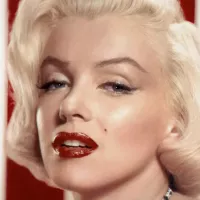
Marilyn Monroe was an iconic American actress and model who...
California is a U S state on the Pacific Coast...
Saturday Night Live SNL is a late-night live sketch comedy...
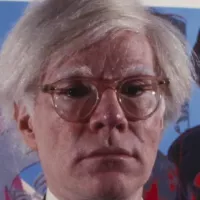
Andy Warhol - was a pivotal American artist film director...
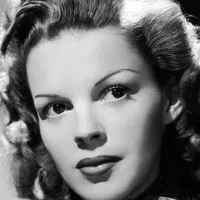
Judy Garland was a celebrated American actress singer and vaudevillian...
Trending

37 minutes ago Mpetshi Perricard tries Dehaes after Planque split, Dubai & Doha comments.

37 minutes ago Otto Virtanen Gears Up for Dubai 2026: Match Analysis and Fan Commentary

37 minutes ago Choinski Qualifies for Doha, Faces Mensik in ATP Qatar Open 2026
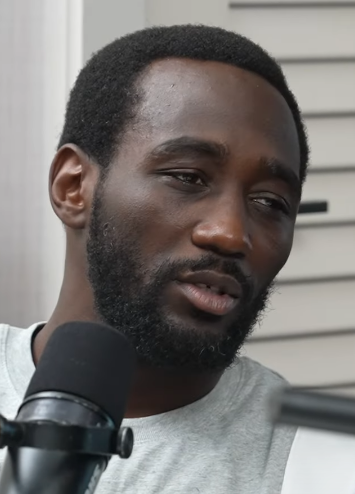
3 hours ago Terence Crawford's son triumphs, securing Nebraska state wrestling title: A proud moment.

2 hours ago Devin Haney superfight obstacles, Ryan Garcia's message, and rematch avoidance claims surface.

3 hours ago Gervonta Davis targeted for world title fight amidst controversy and hit list mentions.
Popular

Jesse Jackson is an American civil rights activist politician and...

Barack Obama the th U S President - was the...

Bernie Sanders is a prominent American politician currently serving as...

Ken Paxton is an American politician and lawyer serving as...

Michael Joseph Jackson the King of Pop was a highly...
WWE Raw a professional wrestling television program by WWE airs...
